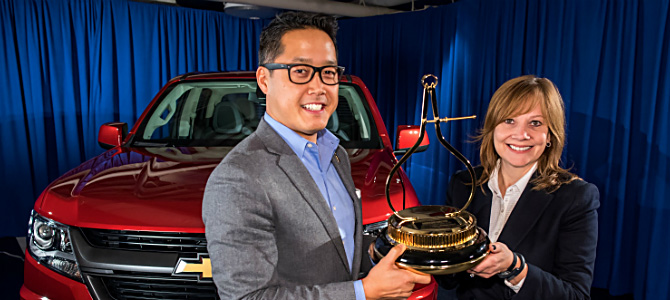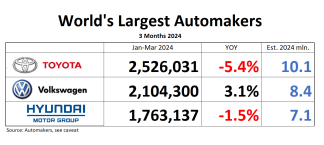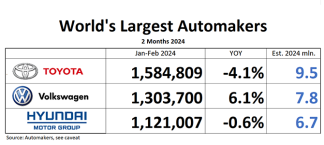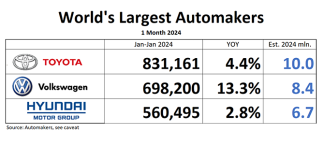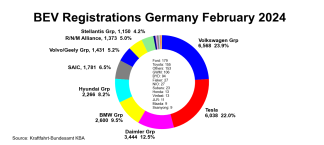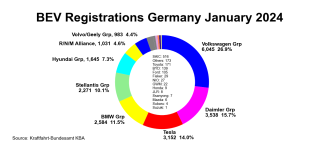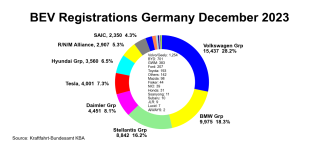For as long as General Motors has been losing market share in the United States, Detroit’s largest automaker has looked beyond mere success on the market to craft a winning PR narrative. This has been no easy task; after all, nothing succeeds like success. But luckily for GM there is an alternative to actual success: awards. Offered by countess media outlets, professional associations and industry groups, these awards may not actually substitute for (let alone drive) consumer demand for GM’s products, but they do allow the Ren Cen’s merry spinmeisters to craft an appearance of success for the company, no matter how at odds with reality it is.
History is littered with embarrassing legacies of this strategy, perhaps most notably the time when GM won Motor Trend’s 1971 Car Of The Year award for its hapless Chevrolet Vega. But GM’s awards-centric strategy is hardly a thing of the past: just last week, CEO Mary Barra claimed that recent awards prove that GM is indeed a new company and that “we are there to win.” Barra’s statement was deeply ironic, as touting award wins as a sign of success is precisely the kind of “leadership” that allowed GM to ignore its failures on the market for decades. In fact, under Barra’s leadership GM is not simply falling back on awards to burnish its underperforming vehicles, it’s relying on awards to polish Barra’s image as well. Worst of all, it appears many of these awards are effectively bought and paid for.
The product awards that Barra touted as a sign of GM’s alleged newfound success are hardly worth wasting pixels on. Most auto product awards are offered by auto media outlets, and (at best) reflect nothing more than that publication’s subjective preferences. Rumors have circulated since time immemorial that auto magazines trade these plaudits for advertising space, effectively making them rewards for an automaker’s support of a publication, but these whispers have never been conclusively proven. Still, there can be no doubt that “Car/Truck Of The Year” awards are sufficiently mutually-beneficial for outlet and advertiser alike as to be highly questionable. Automakers get a PR point, the outlet gets its name mentioned in the ensuing marketing campaign, and the winner is all but guaranteed to buy a large celebratory advertisement in the awarding magazine. The only party that doesn’t come out ahead in these annual exercises are consumers, who are largely unaware of the highly subjective (and often opaque) way in which media outlets choose a field for these awards and then winnow it down to a single winner. And lest you think this critique is past its use-by date, consider that just last year Chevrolet’s Silverado was voted North American Truck Of The Year just days after being recalled for spontaneous fires that burnt several trucks to the ground.
But Barra’s emphasis on product awards is just business as usual, yet another sign that a CEO who has never worked outside of GM is struggling to deliver long-promised “culture change.” What Barra has done in her first year as CEO is bring in a whole new pile of awards, not for GM’s products but for herself. This is not entirely surprising given that Barra is GM’s first female CEO, but these awards have been complicated by GM’s massive defect scandal which broke just as Barra took over. This awkward juxtaposition caused one of the most prominent awards given to Barra last year, the National Women’s History Museum Katherine Graham Living Legacy Award, to be revoked under protest from victim families. Once again, awards proved to be no match for the facts on the ground.
And a closer look at some of the other awards that Barra won last year suggests that they were not merely spontaneous outpourings of support for Detroit’s first female CEO, but something considerably more cynical. Prior to the NWHM debacle, Barra was awarded something called “The Appeal of Conscience” award for “encouraging a standard in which corporate America and global corporations accept responsibility.” But, as an enterprising Redditor points out, the gala program lists GM as an “underwriter” for the event and GM’s then-Senior Vice President of Global Public Policy Robert Ferguson as a “co-chair” of the dinner. Though it’s not clear what these sponsorships cost GM and its officers for the 2014 Appeal Of Conscience Awards, a solicitation for the previous year suggests the “underwriter” level cost $100,000 that year. CharityNavigator also indicates that the Appeal Of Conscience Foundation does not have a conflict of interest policy, raising even more questions about the role of GM’s sponsorship in securing Ms. Barra’s award.
Barra also received the Michigan Women’s Foundation “Women of Achievement and Courage” award last year, a fact GM promoted on its own media website. What GM did not disclose in that announcement was that one of the MIWF’s board members is Jocelyn Allen, a GM executive in charge of the firm’s marketing/communications diversity center. Though it’s not clear how much GM donated to the event in 2014, it has sponsored the dinner in the past and it did bring a Chevrolet Corvette for attendees to pose next to in photos. Barra also won a “manufacturing award” from the Detroit Economic Club last year, an organization that it is a “patron” sponsor of at a cost of $50,000 per year.
Between GM’s self-destructive, long-term addiction to meaningless awards and the various problems with Barra’s awards in 2014, it’s safe to say GM should probably start looking for a new PR strategy. Product awards have long proven themselves to be pointless distractions, but Barra’s personal awards have hardly enjoyed any greater success. Whether serving as a flashpoint for criticism, like the NWHM award or simply appearing to be bought-and-paid-for like the other prizes listed here, Barra’s awards have done nothing to change perceptions of GM. If anything, they merely point out how desperate GM is for any kind of good news, not matter how inconsequential or manufactured. Maybe it’s time for GM to forget about winning awards and get back to winning where it matters: with consumers.
